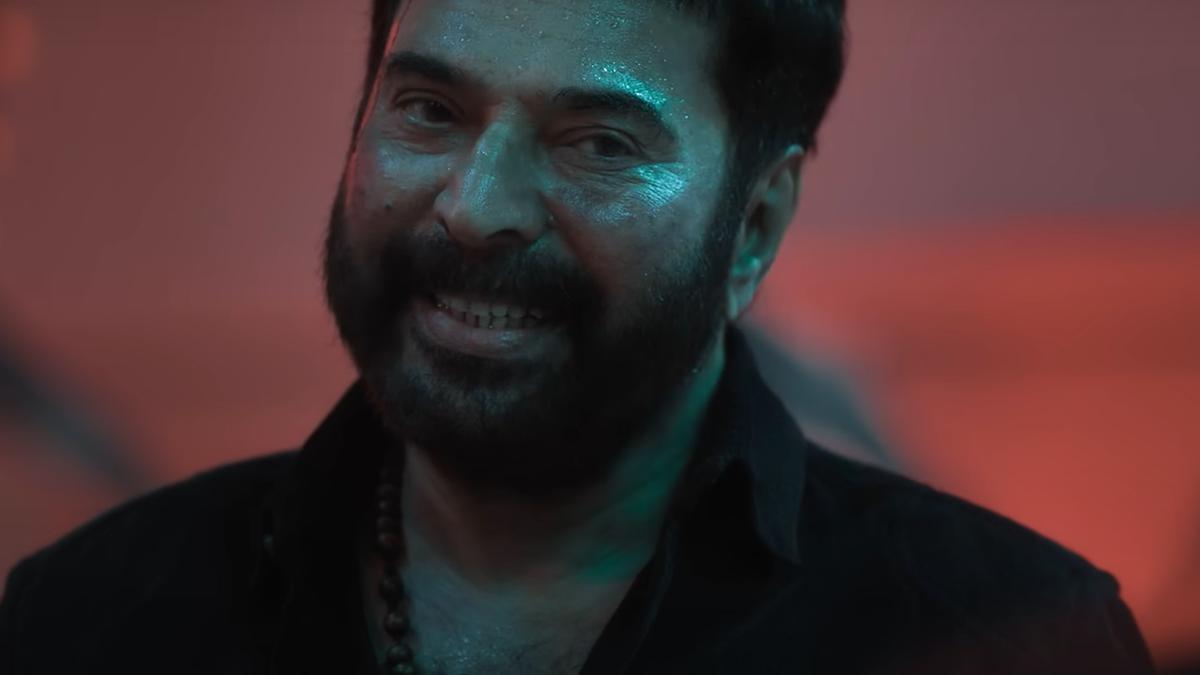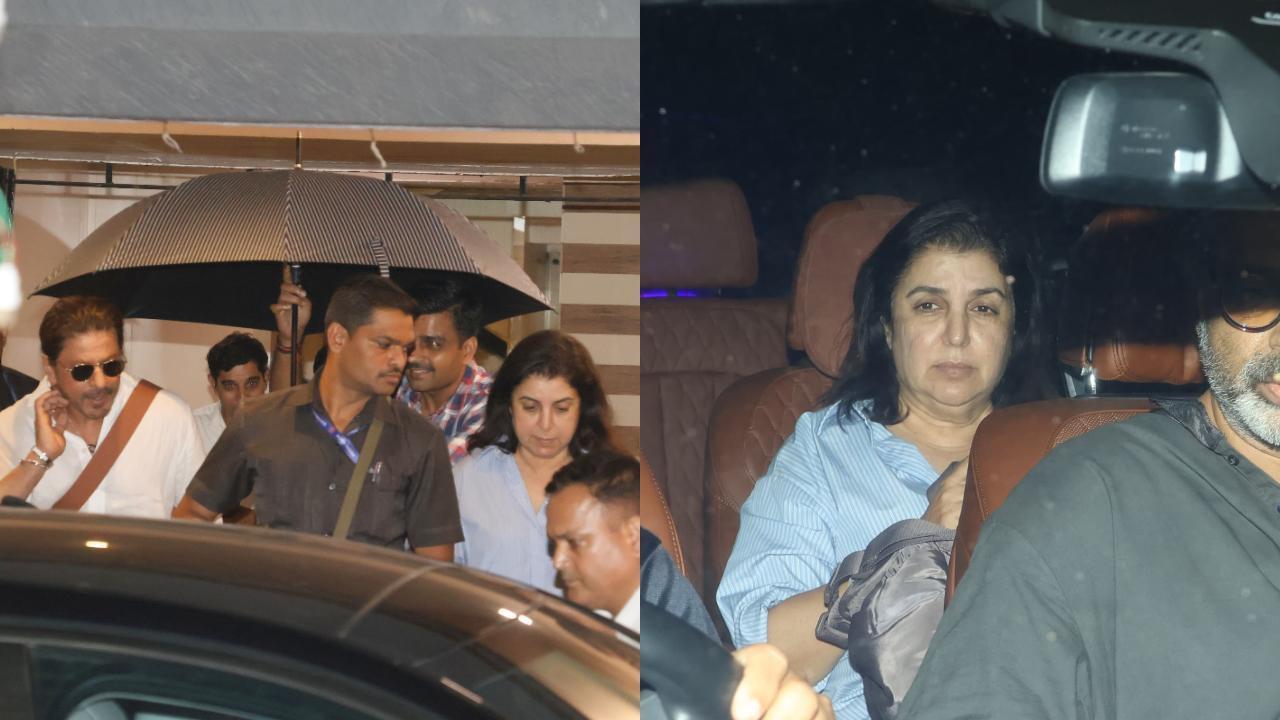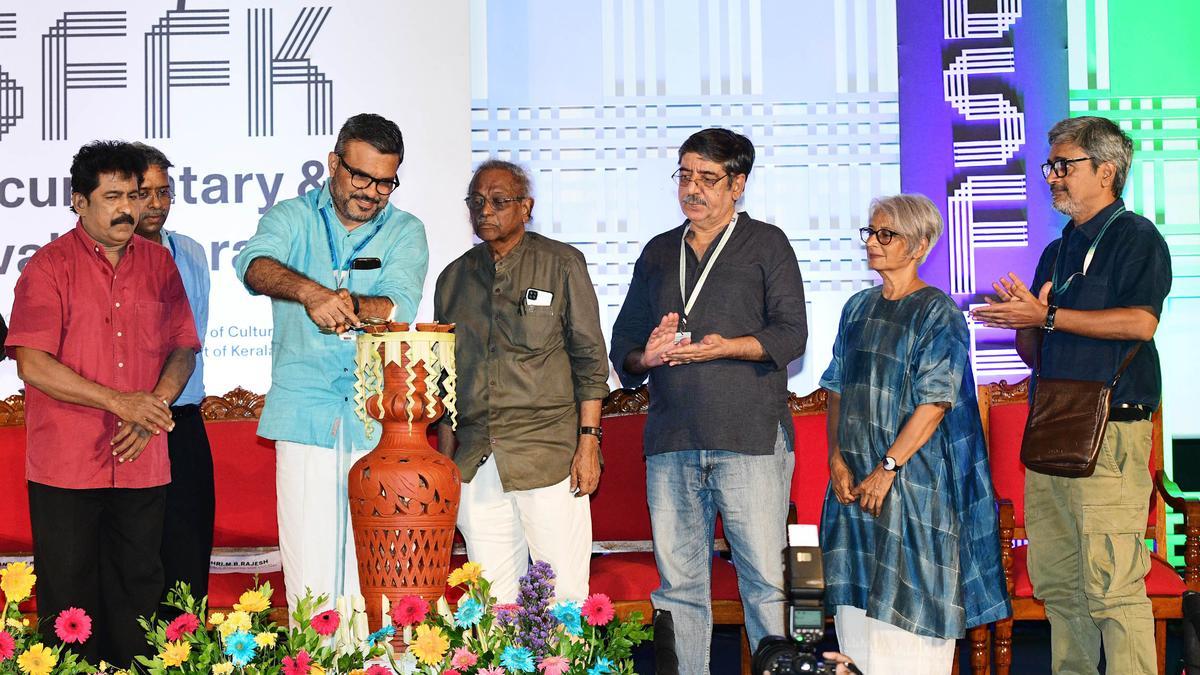
Among the pulsating beats of an otherwise monotonous background score in “Turbo,” the distinctive sound of someone flooring the accelerator stands out, signaling the arrival of ‘Turbo’ Jose (played by Mammootty) as he prepares to dive into yet another fight. This sound cue serves as a prelude to the chaos Jose is about to unleash, intended to build up anticipation. Despite the ensuing action, it quickly becomes evident that the film’s foundation is so fragile that viewers may find themselves indifferent to whether the story reaches its peak or not.
Given filmmaker Vysakh’s last work, the critically panned “Monster,” “Turbo” can be seen as a marked improvement. The philosophy underlying “Turbo” seems to be that a minimalistic plot suffices as long as it provides an excuse to showcase a series of action-packed sequences. Midhun Manuel Thomas, the film’s screenwriter, is tasked with delivering just that. Consequently, he has little opportunity to reverse the downward trajectory of his screenwriting career.
The character of ‘Turbo’ Jose is introduced as an ordinary man from the high ranges, characterized by his frequent brawls. However, after one such battle, it is revealed that Jose was not the intended target; his friend Jerry (played by Shabareesh Varma), who is in love with Indulekha (played by Anjana Jayaprakash), was the actual mark. Jose’s attempt to aid his friend sets off a chain of unintended consequences, culminating in the narrative shifting to Chennai. It isn’t long before they find themselves on a collision course with Vetrivel Shanmuga Sundaram (portrayed by Raj B. Shetty), a sinister businessman with ambitions of gaining political power in Tamil Nadu through dubious horse-trading tactics—a topic very much in the public eye these days.
Vysakh and Midhun dedicate the first half of the film to establishing the plot, leaving no room for ambiguities or moral grey areas. This meticulous setup allows for the latter half to be dominated by high-speed chases and extended action sequences. Unfortunately, this structural choice is one of the elements that bogs down the film. Once the central banking scam is unveiled, the narrative loses momentum, offering no surprises to keep the audience engaged.
In a screenplay that feels otherwise flat and riddled with clichés, Midhun sneaks in a few intriguing moments. One such highlight is Auto Billa (played by Sunil)’s Marlon Brando impression in a dilapidated mall, where Jose reveals his true nature to his superior. Another memorable instance is Jose’s heartfelt recounting of a traumatic childhood event to explain his close bond with his mother (portrayed by Bindu Panicker).
Nonetheless, “Turbo” will ultimately be remembered for recycling age-old tropes that have long been a staple of this genre and for its reluctance to venture into new territory.
. Just like an overwhelming number of movies these days, this one also wraps up with a promise of a sequel. The film even echoes sentiments about ‘Turbo’ Jose’s character arc that one has to admire their confidence in making such a bold commitment.
As the film progresses, it becomes clear that “Turbo” seeks to cater to an audience hungry for adrenaline-pumping action devoid of intricate storytelling. While the action choreography is undeniably top-notch, it often fails to compensate for the lackluster and predictable narrative. For instance, Vetrivel’s arc, which could have offered a rich mine of twists and complexity, remains disappointingly one-dimensional, serving more as a plot device than a fully realized character.
The cinematography captures the high ranges and urban landscapes with a crisp clarity that underscores the contrasting worlds Jose navigates. However, stunning visuals alone cannot salvage a script that appears determined to stick to a formulaic playbook. The repetitive nature of the action sequences, while initially engaging, soon loses its novelty as the film progresses.
Bindu Panicker’s portrayal of Jose’s mother offers a sliver of emotional depth, adding a layer of sincerity to his motivations. Her performance is poignant, providing a temporary respite from the otherwise relentless action. Anjana Jayaprakash’s Indulekha is also commendable, her chemistry with Shabareesh Varma’s Jerry adding a touch of warmth to an otherwise cold and calculated film.
Ultimately, “Turbo” is a mixed bag. While it succeeds in delivering the high-octane action its title promises, it falters in offering a compelling narrative to support that action. The film’s reluctance to innovate and its reliance on clichéd tropes prevent it from rising above mediocrity. The promise of a sequel at the end feels more like a commercial strategy than an artistic choice, further emphasizing the film’s industrial approach to storytelling.
Despite its flaws, “Turbo” manages to carve out a niche for itself, albeit a small one, within the action genre. Its main draw remains Mammootty’s magnetic presence, which, despite the script’s shortcomings, is reason enough for his fans to flock to theatres. As for the rest, Turbo offers a brief thrill ride that is likely to be forgotten soon after the credits roll.
“Turbo” is currently showing in theatres, marking yet another entry in Malayalam cinema’s evolving landscape.










